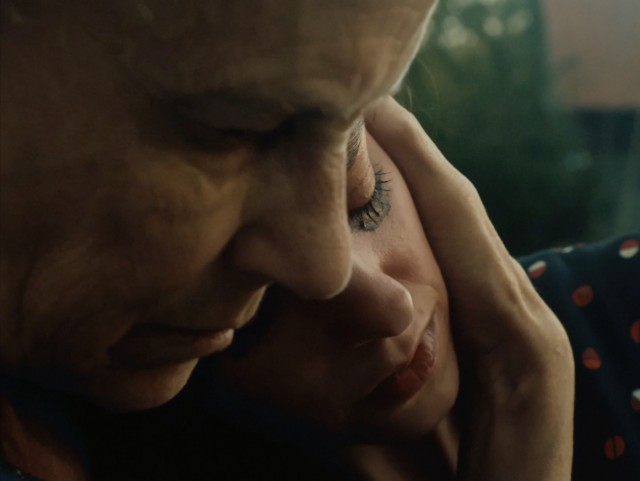As she spends time with her mother, a woman begins to question her life choices and how they both shape and are shaped by the generations of women in her family. We’re excited to welcome back S/W alums Pisie Hochheim and Tony Oswald (Handheld) with Seeds, a project where the writing-directing duo also take on roles as DPs and editors – Hochheim is also in front of the camera in the lead role. This eerie, almost spooky film effectively captures the emotional journey of its protagonist, as she reflects on the meaning of being both a daughter and a mother.
“We frequently question whether or not our generation’s lack of interest in procreation is selfish”
The decision to have children – or not – is a universal experience, especially in today’s world, where it is becoming more common for people to choose against parenthood. When discussing the origin of the project, Hochheim shared, “Tony & I were interested in making a film about the challenges and anxieties I feel as an artist regarding our choice to not have children.” Adding that they both also wonder “whether or not our generation’s lack of interest in procreation is selfish”. These themes lie at the core of the film, explored through the prism of three generations and how a woman’s own lineage affects that decision.
While the role of the grandmother in Seeds is more spectral, her visual presence contributes to the lyrical and eerie tone of the film, making her emotional weight more potent in the woman’s mind. The main relationship of the film, that will foster all the questions about motherhood, is between the woman and her mother. The mother occupies a pivotal role in the generational lineage depicted in the film, as she is the only character who is both fleshed out as a mother and a daughter. She also serves as a bridge between the three generations, embodying the societal evolution of the decision to have children.

“I acted in the film with my mother, and my brother who had never held a boom in his life ran sound” – director Pisie Hochheim discussing their production
The woman’s choice has already been made, but Seeds reveals her moments of self doubt and how she sometimes questions herself through the pepper plant. Between the cinematography, Austin Hoke’s original score and this plant, the directors immerse us in a mysterious atmosphere. Here, we know that the protagonist is not threatened physically, but instead has an emotional turmoil to deal with relating to the choices and lifestyles of her ancestors. Hochheim confessed that “at first we were really letting imagery guide our process”.
There is an immediate intimacy in the way the film is framed and the subtle yet powerful dynamic between the two actresses. This authenticity benefits from the fact that they shot in the house where Hochheim’s mother grew up, allowing them to be very familiar with their location. With a skeleton crew consisting of the two directors, Hochheim’s brother as the sound recordist, and her own mother acting opposite her on screen, Hochheim also explained that the narrative of the film materialized from long improvised scenes with her mother.
Hochheim and Oswald have an exciting slate of projects in the pipeline, including the feature development of two scripts expanding on the universes of their previous shorts, Handheld and Seeds. They are also directing a documentary feature about the house featured in this film and editing and associate producing a feature documentary about a family in the South.

 Céline Roustan
Céline Roustan